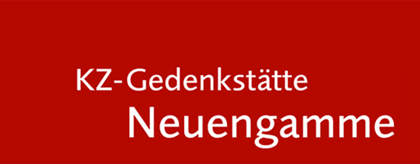07/18/2019 Report
Inclusive Workshop “Hamburg-Theresienstadt“
The inclusive workshop “Hamburg-Theresienstadt” took place from July 7 through July 12, 2019 with young people with and without disability. The German-Czech inclusive workshop is one of many international workshops initiated and conducted by the Hannoverscher Bahnhof Memorial. The participants worked on different products for the upcoming exhibition of the Hannoverscher Bahnhof Memorial documentation center. They drew on the youth projects from previous years.
The German-Czech workshop took place shortly before the 77th anniversary of the first two deportations from Hamburg to Theresienstadt. Among the participants, there were employees of Elbe-Werkstätten Ost, who run the cafeteria at the Neuengamme Concentration Camp Memorial, as well as other young people from Germany and Czech Republic.
First two days, the participants dealt with the Hannoverscher Bahnhof train station as a historical place and the history of National Socialism in general. Historical events were arranged chronologically and the participants started getting closer to the topic through conversation. “Deportation” and other complicated terms were defined together. The young people also visited the Thalia Theater where they saw the play “Das ist Esther” (“This is Esther”). It is about Esther Bauer, a Holocaust survivor from Hamburg, who was deported to the Ghetto Theresienstadt from the Hannoverscher Bahnhof train station in 1942. The biography of a Jewish woman from Hamburg made it possible to connect the two places – Hamburg and Theresienstadt – in a striking way. Through guided tours and visits to exhibitions with the possibility of focusing on a specific area of interest, the participants were able to deal with the history in a more thorough way. The main focus was on the participants’ interests and their perception of the past as well as the places nowadays. One of the things the participants dealt with in Theresienstadt was the biography of Helga Hošková-Weissová, a survivor from Theresienstadt, because her fate was similar to that of Esther Bauer. They were both transferred from Theresienstadt to Auschwitz and on to Freiberg, a satellite camp of the Flossenbürg concentration camp.
The participants also got the change to express themselves in a creative way. The photographer Kati Jurischka taught them what makes a good photograph, how to use different techniques and how they can have different impact on viewers. At the Hannoverscher Bahnhof Memorial they made photos in teams to show that similar subject matter can result in very different pictures. In Theresienstadt, the participants made pencil drawings which again showed very different perspectives. More photographs were made during the tour of the former ghetto area and the visit of the museum. A selection of the photos will be shown at the cafeteria of the Neuengamme Memorial in a couple of weeks. The photos will also be a part of the permanent exhibition at the Hannoverscher Bahnhof documentation center. Simon Grosser filmed the workshop and the documentary will be available online as well as incorporated into the permanent exhibition at the documentation center, too.
During a closing discussion all the participants looked back at the workshop. One of the questions was why people should deal with the Nazi crimes and the fate of the persecuted people today, in connection to which various forms of discrimination were brought up, such as discrimination against people with disabilities, antisemitism, racism and homophobia. In the end, the participants stressed that the feeling of mutual respect and the thoughtful organization made learning together possible and fun.
More workshops with young people are planned to take place in the future. They will deal with other places of deportation in Hamburg. The next one is scheduled for the fall and will take students from different fields of study to Riga and Stutthof and in October there will be another workshop which will take place in Lodz, Kulmhof and Auschwitz.
Report by Nathalie Döpken and Sarah Grandke
"I have to say that I am very glad that I could be a member of this project. Actually before I went to Hamburg I was not really sure what I can expect, but there were only good surprises. I cannot say that all the history was new for me, but now I see it definitely from another perspective. Also the trip to Terezin was new for me, even though I am Czech. I learn a lot about how an 'inclusion' can look like, because I have never spent more than one day with disabled people. And also for me personally I gain a lot. First in terms of language, I was practicing my german for days. Secondly due to the foto workshop I could realize that photography used to be my big hobby, so I would really like to start doing it again. Overall thank you so much for the opportunity that you gave to me. I have spent amazing time with all of the participants." Hana Fikrová (21, Prague)






